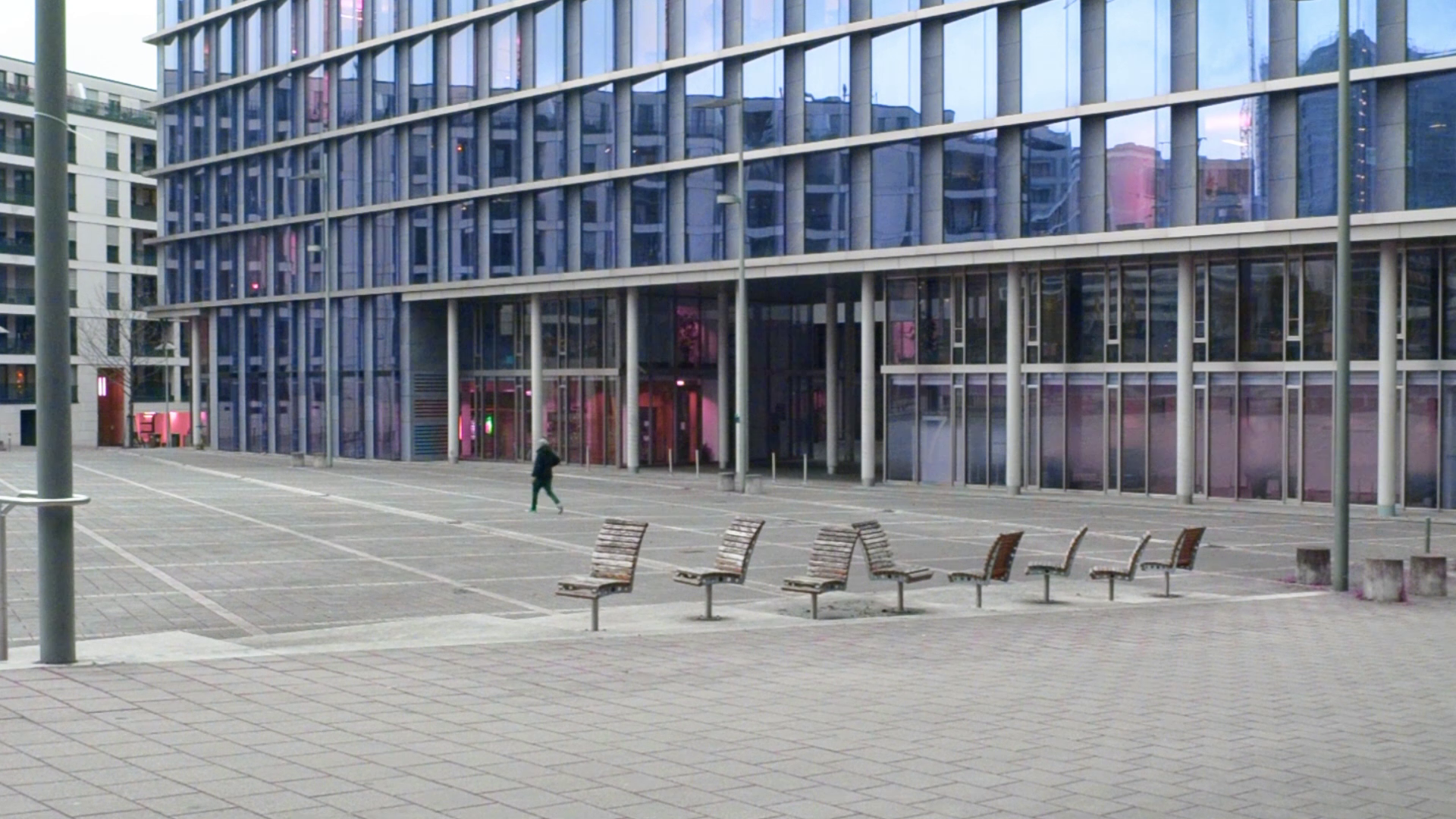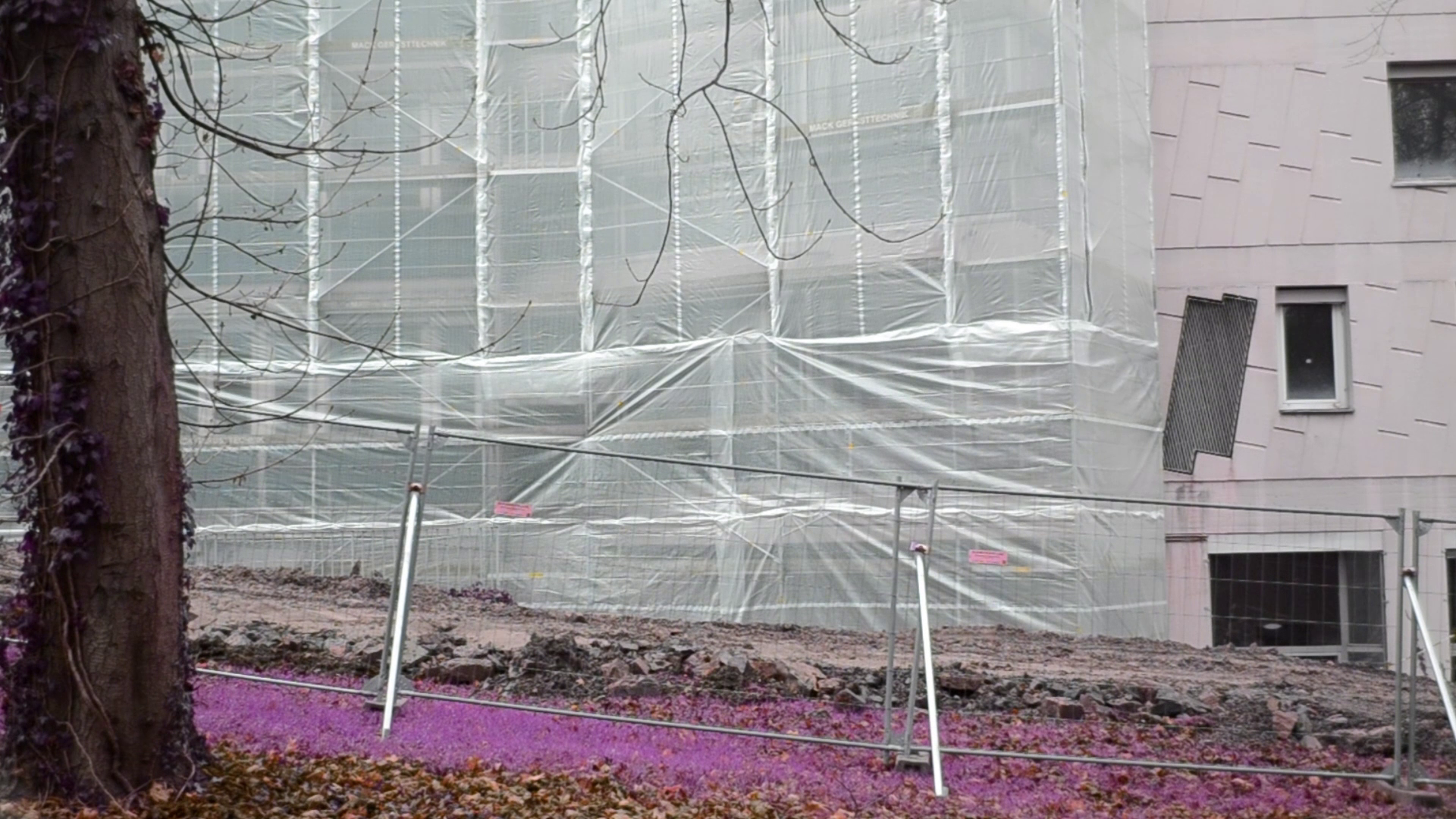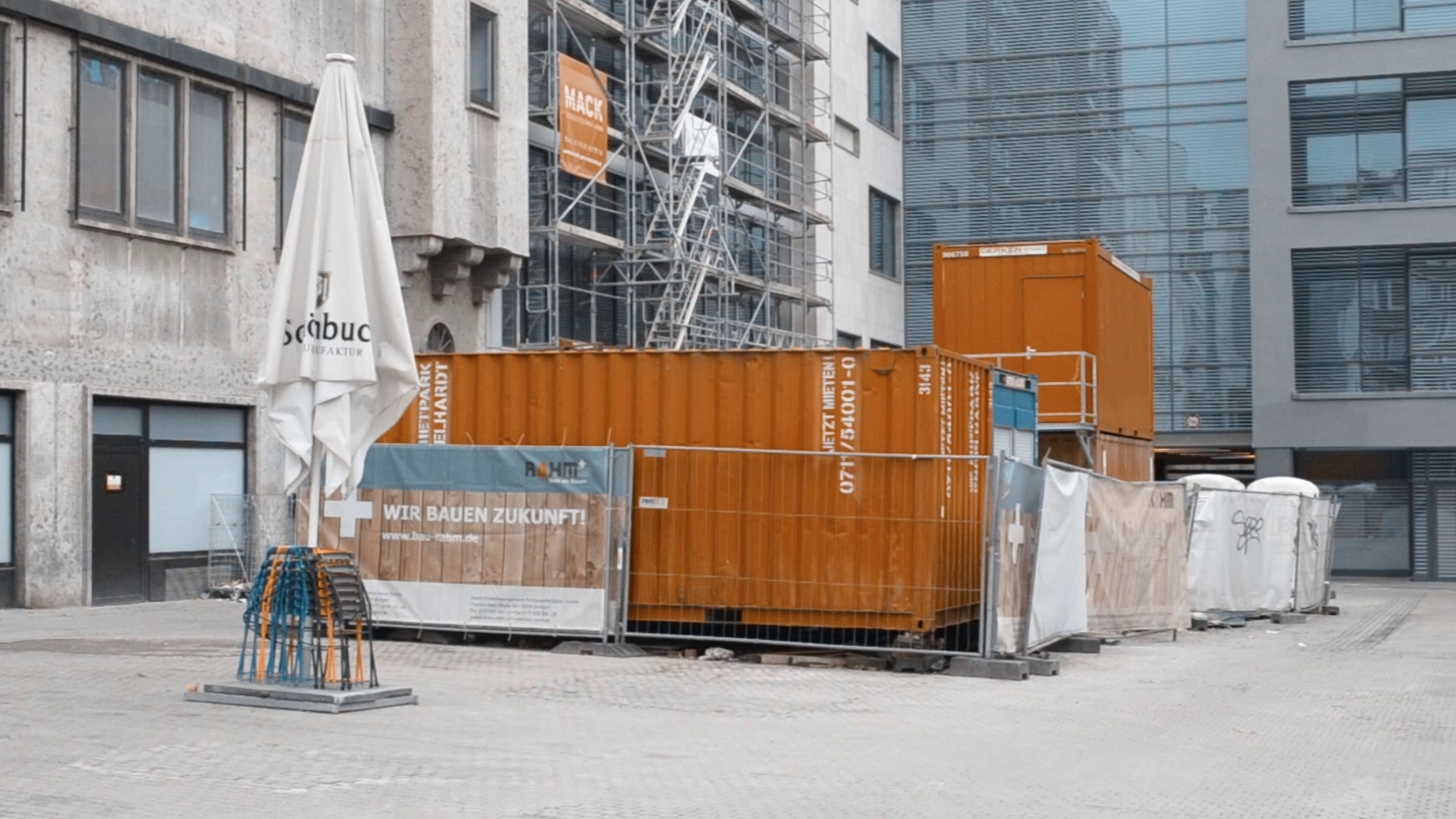During a period of restrained movement, of silent fear and invisible walls, of temporal barriers and solitude, the city became a place outside, detached from experience and projected under the hopes for another, future time. Stuttgart Sub Rosa is the picture of a city locked at home.


The text relies on a language that is detached in its poetics and metaphors, often referring to a memory instead of what is seen. The voice of the author speaks in first-person in plural. At the same time, the author opts out of the scenario when the “I” is replaced by a borrowed voice. The “I” is placed at another time, a time after the time of the Film, detached and able to walk the audience around its work. The Anonymous voices will speak of a collective reality: the pandemic and its related new behaviours, the confinement of working from home and the pressure of the ideals of productivity. The third voice borrowed from the film Jonas (by Ottomar Domnick), will speak of an anxiety which is collective in its mechanism but personal in experience.
Ottomar Domnick’s “Jonas” takes place in the cold post-war Stuttgart of 1957, within the turmoil of economic growth and the scars left by the war. The main character finds himself hunted by a state of constant anxiety and guilt about his past during the war. In an attempt to reposition himself socially, he buys a hat, which becomes the metaphor of his past. In Stuttgart Sub Rosa, the strong presence of the voices inside Jonas’ head are referenced and inserted in the current pandemic situation.




Graduation project / 2021 / IGmA / Universität Stuttgart / Prof. Dr.-Phil. Stephan Trüby / Supervised by: Sandra Oehy, Philipp Krüpe, Leonard Herrmann